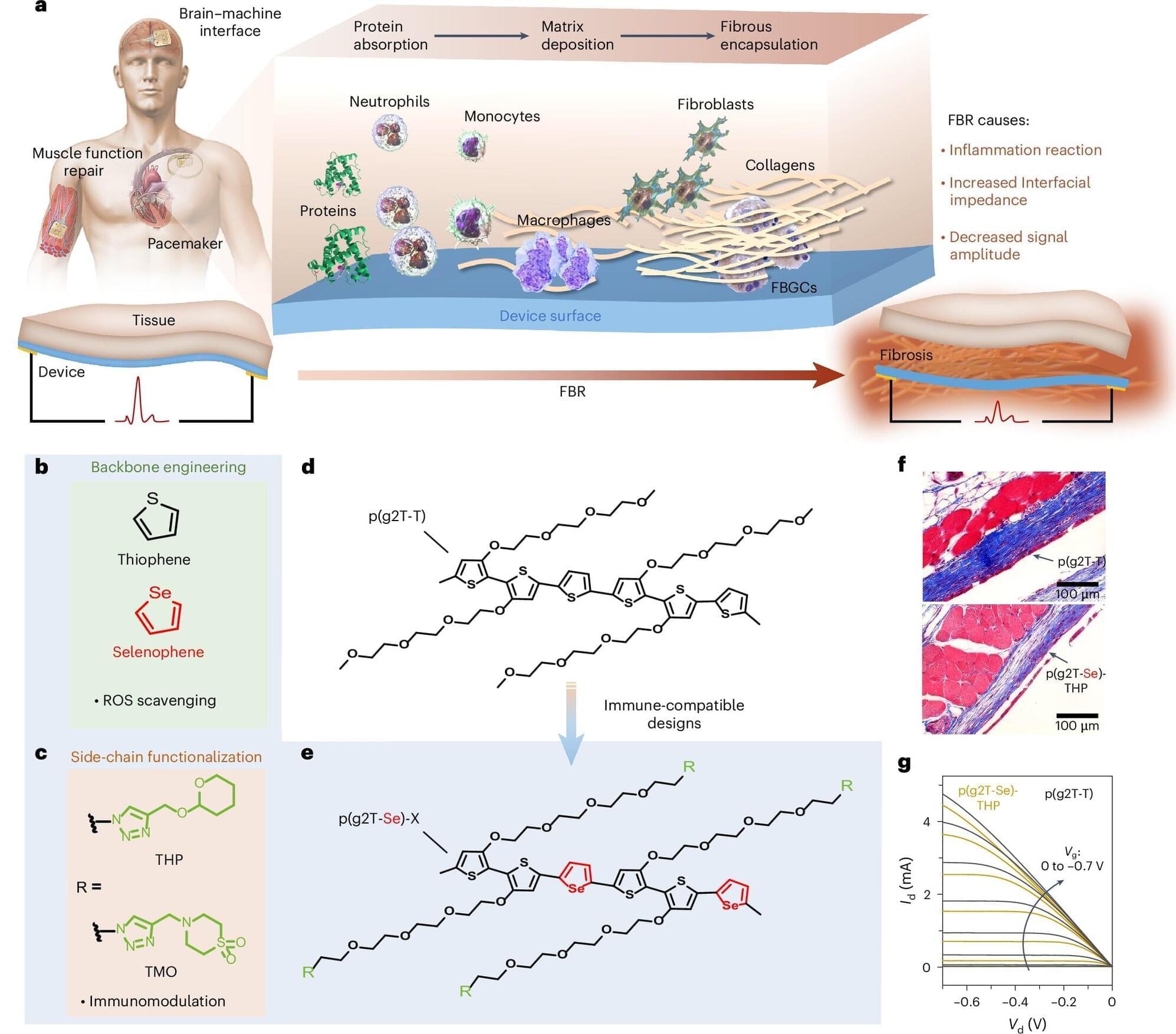Over time, scar tissue slows or stops implanted bioelectronics. But new interdisciplinary research could help pacemakers, sensors and other implantable devices keep people healthier for longer.
In a paper published in Nature Materials, a group of researchers led by University of Chicago Pritzker School of Molecular Engineering Asst. Prof. Sihong Wang has outlined a suite of design strategies for the semiconducting polymers used in implantable devices, all aimed at reducing the foreign-body response triggered by implants.
The immune system is primed to detect and respond to foreign objects. In some cases, the immune system might reject lifesaving devices such as pacemakers or drug delivery systems. But in all cases, the immune system will encase the devices in scar tissue over time, hurting the devices’ ability to help patients.
